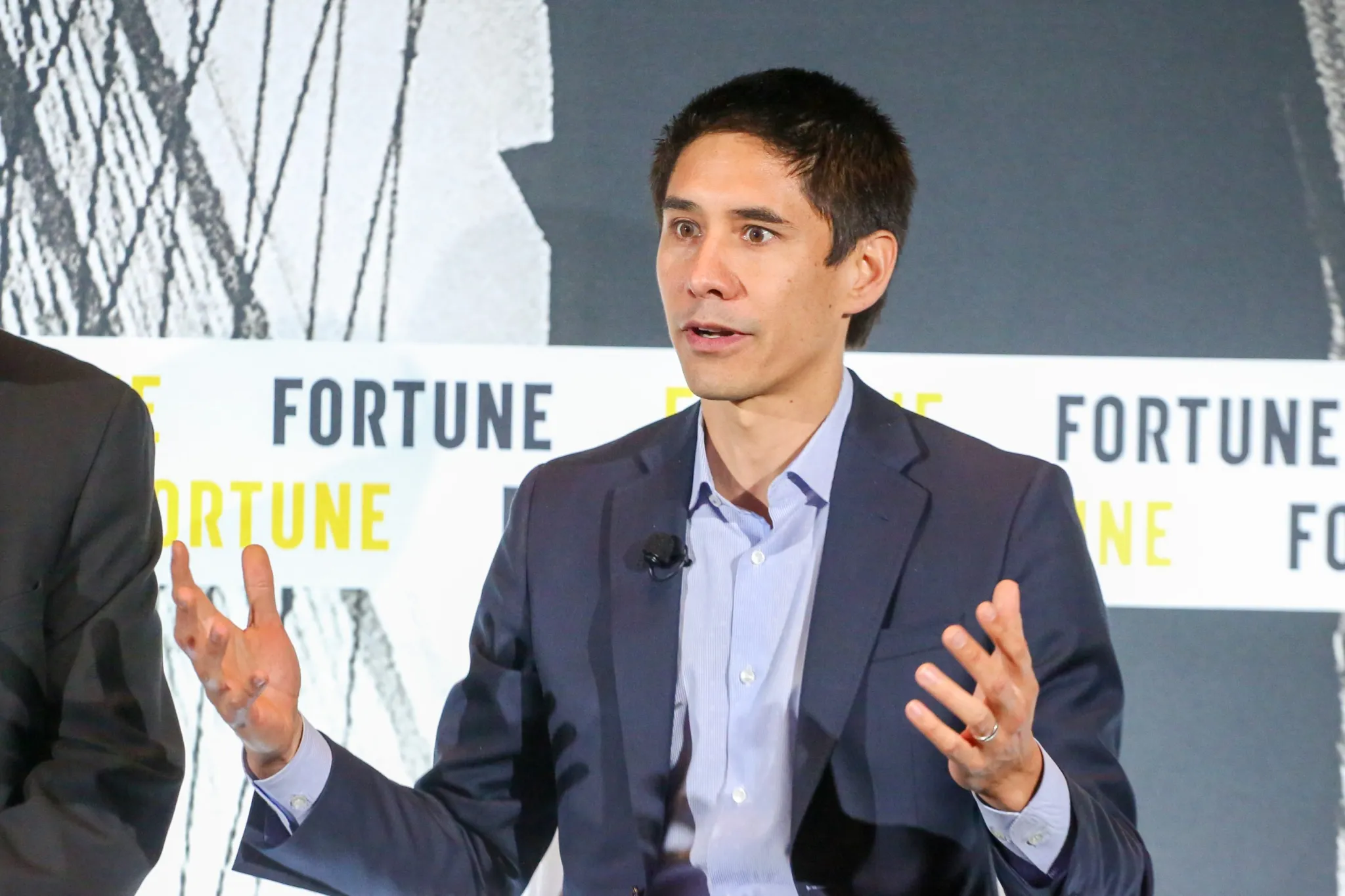The CEO of Glassdoor says doubling down on remote work has turbocharged its ability to ‘tap into talent’
With CEOs of large companies like Amazon and Goldman Sachs mandating a full return to office, it seems that many company leaders are fully done with the work-from-home experiment. But that’s not the case for Glassdoor, a platform that allows workers to anonymously review their current or former employers.
In February this year, the company announced that it was doubling down on remote work, closing its last remaining offices in Chicago and San Francisco, and placing a big bet on its distributed workforce. Months later, CEO Christian Sutherland-Wong says it’s not going back.
“I think the biggest benefit we’ve seen, being a fully remote workplace, is being able to tap into talent all around the U.S. and all around the globe that we didn’t have access to when we were an office-based company,” Sutherland-Wong, tells Fortune. “And that’s been a powerful change to the talent we’ve been able to bring on.”
Fortune sat down with Sutherland-Wong to discuss the state of remote work, using AI bots for recruiting, and the current state of the labor market.
This interview has been edited and condensed for clarity.
Many CEOs are mandating that employees come back to the office. Meanwhile, Glassdoor is doubling down remote work efforts and closing offices. Why do you see remote work as the future?
The current state of the workplace is far more distributed than it was pre-2020. So we’re already starting from a starting point of being more distributed than ever before. I’d say the pendulum has been swinging back. I do expect there will be other employers who will mandate a return to office and some employers who prefer to have their employees in the same physical locations. But I think you’re going to continue to see a lot of companies who will embrace remote work and a lot of companies who embrace hybrid workplaces, where you don’t have to be in the office all the time. We’ve all learned as employers that you can be productive even when you’re not in the same physical location. So I expect that this trend is here to stay.
What’s the current state of the labor market?
Well, it’s been an exciting last 18 to 24 months. I’d say before that, we’d seen a lot of optimism in the labor market. There was a lot of hiring going on and a lot of power in the hands of job seekers throughout the Great Resignation. Then we saw a real shift in the last year and a half, where hiring has slowed down, even though the economy looks relatively robust and you have low unemployment rates. With this period of high inflation, companies are pulling back. Right now, it really feels like the power shifted to the employers. Previously, job seekers had a lot of choices and could easily move between companies. But now they’re holding back, and people stay in their companies longer.
What are your thoughts on using chatbots during the hiring process?
When I talk to a lot of executives about what the recruiting experience is like for them when they make career transitions, they talk about this white glove service of having a great connection with the recruiter and having a person who’s kind of really out there to look after them during their career transition. And then you talk to people who are beginning their career, it’s a very different experience, where they talk about the job seeker black hole, where they apply to companies and they don’t know what’s going on and they don’t know why their applications aren’t getting through. And I see what AI can do is effectively take this kind of white-glove experience and make it available for the masses. An agent could be on your side to take you through your job-seeking journey and make it a much smoother experience.
There have recently been many complaints from job seekers about ghost listings. Why are they so apparent right now?
When it comes to ghost listings, employers often have so many applications coming in for roles that they have trouble filtering them. It’s all very hard to keep on top of. As a result, recruiters are not great at returning to job seekers. And that leaves employees with a bad experience. We’re always thinking about how we can help bridge that gap to let people know what’s going on with their applications.
Glassdoor has come across some criticism regarding allowing people to post about jobs without anonymity. Can you explain the thought behind this decision?
Anonymity is the lifeblood of Glassdoor and is fundamental for having real talks on the platform. It allows people to feel safe when talking about their true experiences at their workplace. And none of that has changed. What we want is the ability for people to have conversations on our platform with people across industries or with their own employees or colleagues. And with that, we’ve given people the opportunity to post anonymously. But also, if they choose to, they can post with their identity, and it’s really up to them how they want to post because there’s a whole new dynamic here. There are some topics that people feel really comfortable posting their identity and other topics where they don’t. And just to be clear, reviews on our platform continue to be entirely anonymous, and that’s not going away anytime soon.
Many states and localities have implemented laws that pay transparency, which require them to include salaries on job posts. What are your thoughts on that?
I think it’s wonderful. At the end of the day, we ultimately want pay equity, gender pay equity, and racial pay equity. It begins with transparency, and I think Glassdoor’s greatest gift to the world is to push the agenda of pay transparency. Years ago, when Glassdoor first started in 2007, there were very few transparency laws in effect, and we’ve really changed the game. Now, we have a much higher level of pay transparency across the board. And I think it’s really wonderful to see governments catching up and pushing paid transparency in their respective places now.
That said, while some companies are coming to the table and operating in the spirit of what these pay transparency laws are all about, that’s where I think Glassdoor as a platform is so important. Because you can put in laws, but people will try and work around them. But Glassdoor is a platform where people are going to hold you accountable. If you don’t tell people what the pay is for this role, other employees of your company are going to go on and post their salary, and then that’s how you can actually get true pay transparency.




